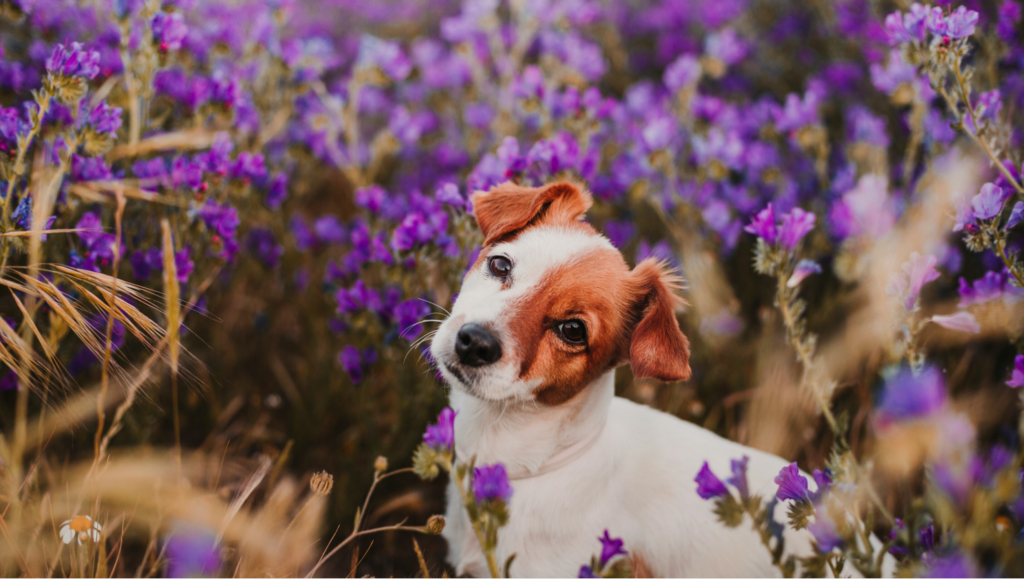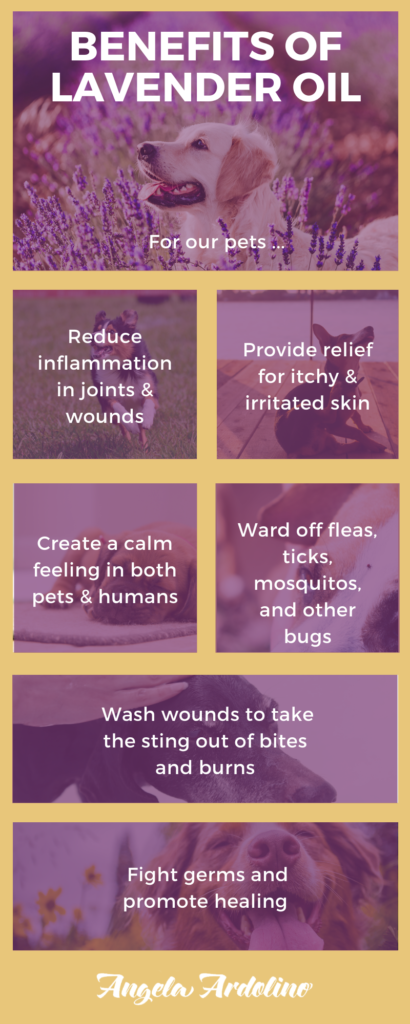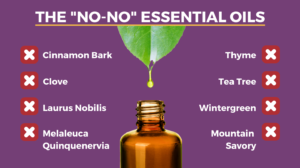Is Lavender Essential Oil Safe For Your Pet?

Have you noticed that everywhere you look, people are talking about essential oils? What once felt like a fringe trend or just a pleasant aromatherapy option has officially gone mainstream. The same popularity has extended to natural grooming and wellness products for pets—and honestly, I couldn’t be happier.
Lavender (Lavandula angustifolia) essential oil, in particular, is one of the most popular and versatile oils used for dogs, cats, and even horses. It’s commonly recommended for everything from skin irritation and fungal infections to muscle tension, stress, and sleep support. This powerful plant oil delivers a safe and natural option for pet parents looking to reduce the use of synthetic medications that may come with side effects.
Is Lavender Essential Oil Safe for Dogs and Cats?
Yes, lavender essential oil can be safely used with pets, as long as it’s high-quality, properly diluted, and used with care.
 That said, animals—especially cats—metabolize compounds differently than we do. Always start with small amounts and closely monitor for any changes in behavior. You should also speak with your holistic or integrative veterinarian before introducing essential oils to your pet’s wellness routine, especially if they have existing health concerns.
That said, animals—especially cats—metabolize compounds differently than we do. Always start with small amounts and closely monitor for any changes in behavior. You should also speak with your holistic or integrative veterinarian before introducing essential oils to your pet’s wellness routine, especially if they have existing health concerns.
Tips for using lavender essential oil with pets:
- Start with a few drops diluted in water or food (for dogs only)
- Use in a diffuser to create a calming environment for everyone in the household
- Gently massage a drop into your pet’s fur (always diluted with a carrier oil)
- Brew a lavender tea for your dog using fresh lavender leaves—bonus: it’s tasty for humans too!
- Use lavender as a natural flea and bug repellent by mixing it with other pet-safe essential oils like rosemary or peppermint (never apply undiluted oils directly)
Lavender + CBD for Dogs with Anxiety
One of the best things about lavender essential oil is how well it synergizes with other natural plant remedies—especially CBD.
For example, ’s CALM tincture combines 550 mg of full-spectrum CBD oil with a blend of lavender essential oil to help manage stress, dog anxiety during fireworks or thunderstorms, separation anxiety, and other fear-based behaviors. Lavender helps enhance the calming benefits of CBD, making it a natural powerhouse for emotional and behavioral support.
Myths About Lavender Toxicity in Pets
First and foremost, keep in mind that many products marketed as lavender aren’t actually lavender at all. This beloved scent also happens to be one of the most frequently adulterated and synthetically altered essential oils on the market today.
IMPORTANT: These are the products that cause adverse reactions in pets. They are not pure plant oils or plant extracts.
Because the essential oil industry is largely unregulated, it’s a buyer-beware marketplace. This makes it all the more important to verify that what you’re using around your pets is genuine, high-quality lavender essential oil.
One of the best ways to do that? Always ask the company for a Certificate of Analysis (COA). This third-party lab test will show you exactly what is (and isn’t) in your essential oil. It’s the best way to make sure you’re not unknowingly bringing synthetic chemicals into your home.
Be mindful of misleading marketing practices, too. Some companies use “greenwashing” language like “pure” or “organic” in their product name—without any certification or testing to back it up. If a product seems shockingly cheap or too good to be true, chances are, it’s not a true plant extract.
The takeaway? Not all oils are created equally. And when it comes to your pet’s health, quality really matters.
How to Find Safe Essential Oils for Pets
Here’s the hard truth: not all essential oils are created equal.
One of the biggest controversies around using lavender oil for dogs and cats comes from synthetic or adulterated oils being marketed as pure. Lavender is one of the most heavily altered oils on the market, so unless you’re buying from a reputable company, there’s a risk of exposing your pet to harmful chemicals.
? How to ensure your essential oils are safe:
- Always request a Certificate of Analysis (COA) to confirm purity
- Avoid products that seem too cheap or too good to be true
- Watch out for “greenwashed” marketing that uses terms like “pure” or “natural” in the name without backing it up with lab reports
- Look for 100% pure, therapeutic-grade, steam-distilled essential oils
Essential Oils That Are Toxic to Pets (Avoid These!)
There are a few essential oils that should never be used around dogs or cats, either topically, aromatically, or internally.

Avoid these essential oils in pet households:
- Cinnamon Bark
- Clove
- Laurus Nobilis
- Melaleuca Quinquenervia
- Mountain Savory
- Tea Tree
- Thyme
- Wintergreen
Cats in particular are more sensitive due to how they process phenols and terpenes. When in doubt, err on the side of caution, and always work with a pet-safe formulation.
Reduce Toxin Exposure in Your Pet’s Environment
When using essential oils to support wellness, it’s just as important to look at your pet’s overall environment. Dogs and cats spend their time lying on floors, couches, blankets, and rugs—and are constantly exposed to whatever products you use to clean or scent your home.
Avoid these common household toxins:
- Synthetic air fresheners, plug-ins, and candles
- Carpet and floor cleaners with harsh chemicals
- Laundry detergents with artificial fragrances
- Scented dryer sheets and fabric softeners
Choosing plant-based grooming products and cleaning solutions can go a long way in reducing your pet’s exposure to allergens and irritants.
Are Essential Oils Safe for Cats? What the Science Says
One of the most common concerns we hear is whether essential oils are safe for cats. While it’s true that cats metabolize compounds differently than dogs, that doesn’t mean essential oils are off-limits—just that they must be used with care and knowledge.
Veterinarian and essential oil expert Dr. Melissa Shelton has worked extensively with essential oils and cats. In her research and writing, she clarifies that:
- The fear around essential oils and cats often stems from outdated or misunderstood research
- The original “toxicity” concern came from studies involving synthetic chemicals like benzyl alcohol, not pure plant oils
- Cats aren’t “deficient” in enzymes; they are simply different species that require species-appropriate dosing and careful selection
- Essential oils, when used properly, are no more dangerous than pharmaceuticals
Just like with medications, essential oils should be dosed and selected carefully. With a high-quality oil and proper knowledge, lavender essential oil can be safe for cats, dogs, and other animals.
Why Lavender Essential Oil Is a Safe, Natural Solution for Pets
From calming anxiety to soothing itchy skin and repelling fleas naturally, lavender essential oil for dogs and cats is one of the most versatile tools in your holistic pet care kit. Just remember that quality, dilution, and intention matter.
Whether you’re brewing a calming tea, diffusing oils, or using a pet-safe tincture that combines CBD and lavender essential oil, this natural remedy can offer a gentle yet powerful boost to your pet’s well-being—when used responsibly.
Lavender can:
- Reduce inflammation in both joints and wounds
- Provide relief for itchy or irritated skin
- Be used as a wound wash to take the sting out of bites and burns
- Create a feeling of calm when ingested orally OR when used in aromatherapy (for both people and pets)
- Ward off fleas, ticks, mosquitos, and other pesky bugs
- Fight germs and promote healing
- Help other plant oils to be more effective
About Angela Ardolino

Angela Ardolino, a certified cannabis and fungi clinician, brings over 20 years of expertise to the field of holistic pet wellness. As a graduate of the inaugural Medical Cannabis for Therapeutic Use program at the University of Vermont School of Medicine, she is a passionate advocate for safe, natural, and ethically-grown whole plant and fungi medicine tailored for pets.
Committed to the highest standards, Angela continues to educate and inspire pet parents through her popular podcast, Your Natural Dog, where she hosts experts to discuss holistic pet care, natural remedies, nutrition, and training. Follow Angela Ardolino on her website, Facebook, Instagram, TikTok, and YouTube to stay updated on her mission to educate and empower pet parents everywhere.